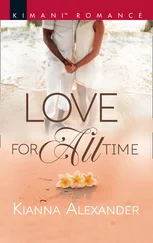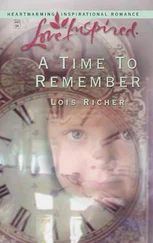Alexander Todd - A Time to Remember
Здесь есть возможность читать онлайн «Alexander Todd - A Time to Remember» весь текст электронной книги совершенно бесплатно (целиком полную версию без сокращений). В некоторых случаях можно слушать аудио, скачать через торрент в формате fb2 и присутствует краткое содержание. Город: Cambridge, Год выпуска: 1983, ISBN: 1983, Издательство: Cambridge University Press, Жанр: Химия, Биографии и Мемуары, на английском языке. Описание произведения, (предисловие) а так же отзывы посетителей доступны на портале библиотеки ЛибКат.
- Название:A Time to Remember
- Автор:
- Издательство:Cambridge University Press
- Жанр:
- Год:1983
- Город:Cambridge
- ISBN:0 521 25593 7
- Рейтинг книги:3 / 5. Голосов: 1
-
Избранное:Добавить в избранное
- Отзывы:
-
Ваша оценка:
- 60
- 1
- 2
- 3
- 4
- 5
A Time to Remember: краткое содержание, описание и аннотация
Предлагаем к чтению аннотацию, описание, краткое содержание или предисловие (зависит от того, что написал сам автор книги «A Time to Remember»). Если вы не нашли необходимую информацию о книге — напишите в комментариях, мы постараемся отыскать её.
A Time to Remember — читать онлайн бесплатно полную книгу (весь текст) целиком
Ниже представлен текст книги, разбитый по страницам. Система сохранения места последней прочитанной страницы, позволяет с удобством читать онлайн бесплатно книгу «A Time to Remember», без необходимости каждый раз заново искать на чём Вы остановились. Поставьте закладку, и сможете в любой момент перейти на страницу, на которой закончили чтение.
Интервал:
Закладка:
7. The Nobel Prize and its aftermath
The year 1957 was, of course, a red-letter one for me, since, in the autumn, I was awarded the Nobel Prize for chemistry. The award was a great surprise to me, for I had never given any serious thought to such a possibility. It is true that, when I was visiting Adelaide in 1950, A. K. Macbeth had said to me one day that, if some of the things I was attempting in the coenzyme field came off, I could well be a candidate for the Nobel Prize. I am afraid I reckoned that his comment said more for his heart than his head, and I thought no more about it. In the latter part of September and the first week or so of October 1957, however, I was in Berkeley at the University of California as a Visiting Professor delivering the Hitchcock Lectures. There I spent a good deal of time with my friend Wendell Stanley, one of America's great figures in biochemistry (and, incidentally, my mentor in the intricacies of American football, a game which we both enjoyed). One evening towards the end of my stay we were having dinner together, when Wendell raised his glass and said 'Your very good health - and remember this toast in December.' I confess that I couldn't think what he meant and, since he clearly didn't want to enlarge upon it, I did not seek to probe the matter. I had promised to spend a few days with Bob Woodward at Harvard on my way back to England, so I flew to New York when my lectures were finished, met Bob there, and with him set off for Boston, as we often did, by rail on a New York Central train named the Yankee Clipper. As we bowled northwards, consuming a succession of drinks in the club car, the subject somehow got around to possible candidates for the Nobel Prize, the award of which was likely to be announced about the end of October. We discussed various names, and then Bob said, 'Of course there are also two rank outsiders in the field - you and me!' 'There could be something in that as far as you are concerned in view of your cholesterol and strychnine syntheses, 'said I, 'but I would lay very long odds against me.' So we had another drink and left it at that.
It had been arranged that I should stay with the Woodwards at their home in Belmont and we arrived there shortly before dinner. To my surprise Doxie (Bob's wife) handed me a letter which had arrived that day from my wife; I had not expected one, since it is always a bit chancy sending letters across the Atlantic if the intended recipient is moving around and stopping for only short periods in one place. I had a look at the letter as I went upstairs to tidy up before dinner; the main point in it was that Robert Robinson had asked Alison for a photograph of me which was wanted for the Swedish press. I would have been peculiarly dense if I hadn't realised the significance of that request, but I still remember the odd feeling I had at dinner, remembering the discussion on the Yankee Clipper and yet unable to say anything about it. After the award was public, and often thereafter, Bob Woodward and I used to recall the incident with amusement. The actual announcement of the award did not come for about a fortnight or so after that night in Belmont, by which time I was back home in Cambridge, and it was not altogether straightforward and simple. The first indication was when a journalist of the Dagens Nyheter of Stockholm descended upon me to congratulate me on winning the Nobel Prize for chemistry, and wanting an interview; this was closely followed by the international press agencies and the British press. In vain I protested that I had received no notification, and indeed I did not give any interview until after I had received - a couple of days later - an official telegram from the Swedish Academy.
That, to the best of my recollection, is the full story of the way in which it all happened. I did later make some discreet enquiries to find out how Wendell Stanley had been so sure of his ground; it transpired that I had emerged as the only contender for that year's prize quite early in the Committee's deliberations, and that he was a close friend of the chairman! The actual presentation ceremony in Stockholm and the accompanying festivities have often been described, and, from the prizewinner's standpoint, are quite marvellous. Particularly impressive, I found, was the way in which, from the moment our plane touched down in Stockholm until we left Sweden, my family and I were accorded, quite literally, the kind of treatment normally given only to royalty or heads of states. One comes down to earth with a bump when one alights at London airport on return and is put through all the usual tiresome formalities with no consideration at all. I remember how, on our return, a rather officious young customs officer at Heathrow made me open up my suitcase and rummaging in it he came across my Nobel Medal. 'What's this?' he said. 'Is it gold?'
'Yes,' I said.
'Then you will have to pay quite heavy duty on it.'
It was clear that he actually meant it, so I said 'I really wouldn't advise you to charge duty on that. Do you know what it is?'
'No, but what has that got to do with it?'
'Well, it's the Nobel Prize Medal and you are going to look very foolish in the press tomorrow, when it is reported that you charged duty on it. If I were you, I think I would let it through.'
And he did!
On the occasion of the dinner given by the King and Queen of Sweden my partner was Princess Margarethe - a tall, strikingly beautiful young woman and a good conversationalist. At about this time, there was quite a lot of speculation in the gossip columns of the international press about who she might marry, and who she was with at this or that function. Naturally, photographers are everywhere during the Nobel celebrations and one of their shots appeared, showing Princess Margarethe and myself at the dinner table apparently having an animated conversation, and she with her left arm slightly raised, as though she were emphasising a point. After I got back to England I had a telephone call from a member of the staff of one of the London Sunday newspapers, who said that he had noticed that the Princess appeared to have what looked like an engagement ring on the third finger of her left hand, and perhaps I could tell him about our conversation - did she say anything about it, or about X (a person with whom her name had recently been coupled by the gossip columnists)? I almost exploded, and I remember telling him that, not only would I tell him nothing about any conversation I had had, but I took it as an insult that he should even have thought that I might! I did, however, remind him that in Europe engagement rings are worn on the right and not on the left hand! As a result of this and one or two other subsequent experiences with journalists of the yellow press, I find myself at times wondering where they are recruited.
There has been a lot of nonsense both talked and written about Nobel Prizes, and the alleged striving for them by candidates in fierce competition with each other. One of the most striking examples is, in my opinion, an appallingly bad novel called The Prize. I have known many Nobel prizewinners, and I have yet to meet one who would conform to the kind of picture given there. Most are people who, like myself, were surprised and deeply honoured by the award, and only a few could be said to have set their sights on the prize and worked, as in a competition, to win it. For a scientist to set his heart on winning a Nobel Prize is, in my view, foolish. After all, if we consider any one subject - for example chemistry - there must be, in any year, a considerable number of candidates any one of whom would be worthy of an award, and, as a rule, there will be a lottery-like element in the final selection. There must be many chemists in the world whose work would warrant an award and who have not received one. It is to the credit of the Nobel Foundation, however, that few, if any, have been honoured whom their scientific colleagues would regard as unworthy to receive a prize. More than that one could not ask of any selection committee.
Читать дальшеИнтервал:
Закладка:
Похожие книги на «A Time to Remember»
Представляем Вашему вниманию похожие книги на «A Time to Remember» списком для выбора. Мы отобрали схожую по названию и смыслу литературу в надежде предоставить читателям больше вариантов отыскать новые, интересные, ещё непрочитанные произведения.
Обсуждение, отзывы о книге «A Time to Remember» и просто собственные мнения читателей. Оставьте ваши комментарии, напишите, что Вы думаете о произведении, его смысле или главных героях. Укажите что конкретно понравилось, а что нет, и почему Вы так считаете.










